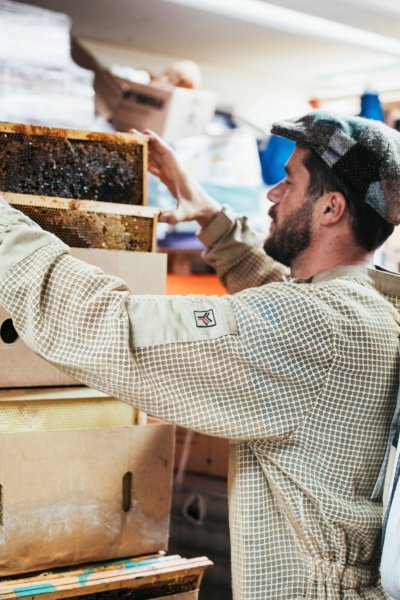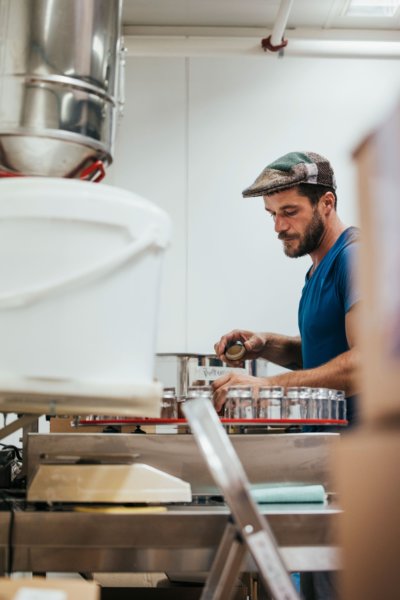Do you really know all about the virtues of honey? Find out how beekeeping can contribute to social reintegration with the new APIDAE project, supported by Equestrio Foundation: “Inclusion through beekeeping”. This original initiative aims to train migrants as beekeepers so that they can return to their homeland in possession of valuable know-how.
Beekeeping as a factor of social integration
APIDAE has been working for 10 years towards the preservation of bees, sad examples of the decline in our biodiversity. Through concrete, local initiatives such as hive hire for individuals, businesses and institutions, the Geneva-based association is fully committed to protecting these industrious pollinators, who offer much more than just the sweet pleasure of honey on our toast, since a third of the world’s food production depends on their precious work[1].
In September 2022, the association launched “Inclusion through beekeeping”, an innovative project at the crossroads of ecology and social rehabilitation, the aim of which is to train two migrants in beekeeping so that they can shape a new destiny for themselves.



Edmond, the trainee beekeeper
The first budding future farmer benefiting from this initiative is Edmond, a young Albanian. APIDAE is training him in beekeeping and paying him a salary for his work as well as providing him with accommodation through a pastoral association. In exchange, he has made the firm commitment to return to his country of origin once the training is completed, to pass on the fruits of his apprenticeship in Albania, a country with a strong tradition in beekeeping that is seeking to modernize and streamline its production. This transfer of capabilities to promote biodiversity beyond our borders lies at the heart of this project.
A hands-on training program
Becoming a beekeeper is not something that can be improvised. Edmond began his training program in September 2022, taking it slowly at first during the off-season, putting honey in jars, making honey candles, and preparing equipment for the harvest. In addition, he took courses in theory over the winter, enabling him to dive deep into the arcane of beehives and their highly coded social structure. In March, Edmond began the practical work on-site where he’s been working three days a week ever since.
A highly successful first fund-raising campaign
In order to finance these 850 hours of training, APIDAE has managed to raise funds through the “Geneva for the Common Good” evening, during which they had 4 minutes to convince the jury of the social and environmental value of their project. They did brilliantly and ranked as one of the 9 winners out of the 20 projects submitted, with CHF46,000 raised. A substantial sum, but not quite enough to finance the whole project.
Equestrio Foundation’s financing
Equestrio Foundation thus contributed CHF8,620 towards the cost of various equipment (full-body suits, smokers, gloves, rucksacks, etc.) and, most important of all, two electric bicycles for the apprentices to commute to the countryside apiaries. Thanks to these bicycles, combined with the lorry transporting the equipment, APIDAE is expecting a reduction of 5 tons per year in its direct and indirect CO2 emissions, corresponding to half the amount produced by a French person in a year.
This funding marks, for a second year running, our collaboration with APIDAE, which we supported in 2021 for its annual rendez-vous “Today we sow”.
So what’s next?
By the end of this year’s training, Edmond should have acquired the full range of skills needed to manage a small business with 200 to 300 hives producing around 9 tons of honey.
APIDAE is already looking ahead to 2024 and the need for new funding – either to complete Edmond’s training or to support his return home with the purchase of the necessary equipment (hives, swarms, extractor, etc.), to enable him to get set up and running quickly, ideally with a partner association.
[1] According to the apiarian experts of the Food and Agriculture Organization of the United Nations

